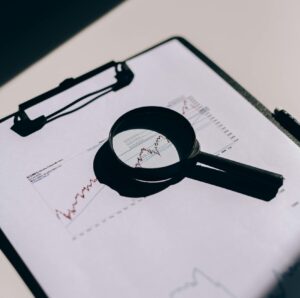Ever looked at your tax bill and thought, “Where does all this money go?” If so, you’re not alone. You work hard, you pay your taxes, but what does HMRC do with it all? Here’s a breakdown so you can see exactly how your contributions are spent.
First, what taxes are you paying?
Before we get into where your tax money goes, let’s look at the main taxes business owners have to pay. Depending on your business setup, you could be paying:
- Corporation Tax: A tax on your company’s profits (currently 19-25%, depending on earnings).
- Income Tax: If you’re a sole trader or partnership, you’ll pay this instead of Corporation Tax.
- National Insurance Contributions (NICs): Paid by both employers and employees to fund state benefits like pensions and the NHS.
- VAT (Value Added Tax): Charged on goods and services if your business is VAT-registered.
- Business Rates: If you own or rent business premises, you’ll likely pay this local tax.
- PAYE (Pay As You Earn): If you have employees, you deduct tax and National Insurance from their wages and send it to HMRC.
- Capital gains tax: If you sell an asset which has gained in value, such as some shares of your company, there will be a tax to pay.
- Stamp duty: If you buy land or a property for your business, you are liable for stamp duty.
Where does your tax money go?
HMRC collects taxes, but they don’t just sit on piles of cash. The government uses this money to fund essential public services. Here’s where it typically gets spent:
1. The NHS and healthcare
A significant portion of tax revenue (about 40% of total government spending) goes to the NHS. This funds hospitals, GP services, ambulance services, and everything else that keeps the UK’s healthcare system running.
2. Education
From primary schools to universities, taxes help fund teacher salaries, school buildings, and educational resources. It’s why the UK has a publicly funded education system rather than a private-only model.
3. Welfare and benefits
A large chunk of tax revenue supports Universal Credit, pensions, disability benefits, and other social support schemes to help those in need.
4. Infrastructure and transport
Think roads, railways, and public transport. Your taxes help maintain and improve the country’s infrastructure. That includes pothole repairs, train network upgrades, and major transport projects.
5. Defence and security
The UK’s military, police forces, and emergency services all rely on tax revenue to function. This includes funding for national security, intelligence services, and law enforcement.
6. Public services and local government
Local councils receive government funding (from your taxes!) to run services such as waste collection, mending the roads, libraries, social care, and housing assistance.
7. Paying off the national debt
Like most countries, the UK borrows money to fund government spending. A portion of tax revenue goes towards paying off this debt and its interest.
8. International aid and government departments
A small percentage of tax revenue is spent on foreign aid, diplomacy, and running government departments, such as HMRC, the Home Office, and the Treasury.
Are your taxes well spent?
This is where political opinions come in, as some people argue that too much is spent on one thing and not enough on another. Overall, taxes are what keep the UK running.
If you want to see exactly where your tax money goes, check out the UK government’s annual Budget Report, which outlines spending plans for the year.
Your taxes are more than just a bill
Paying tax might not be fun, but it’s what keeps the UK running, from the NHS to roads, schools, and pensions. While it can feel like money disappearing, it’s funding the services we all rely on.
Want to make sure you’re not paying more than you need to? A good accountant can help you stay compliant while maximising tax-saving opportunities. Get in touch today.



